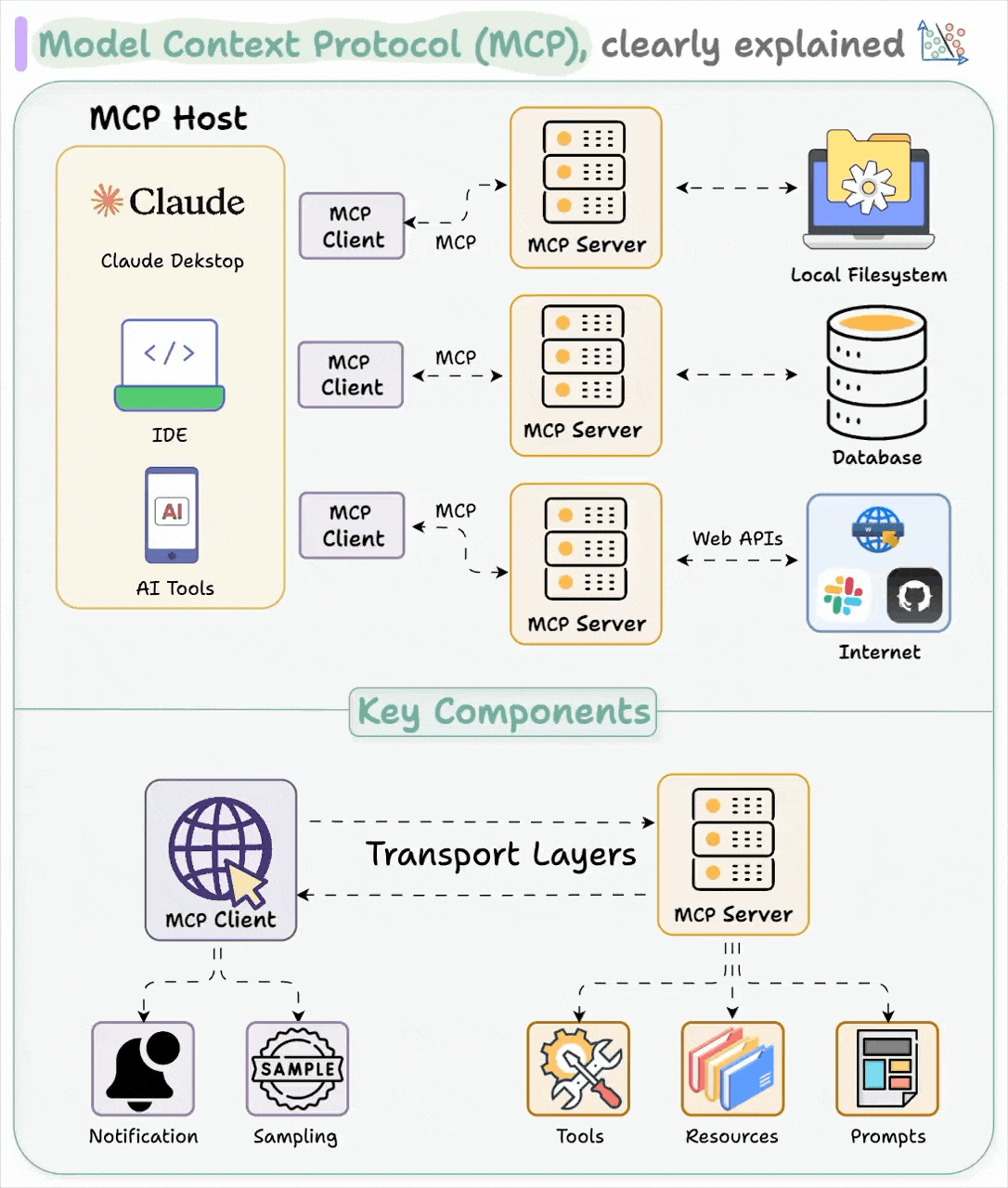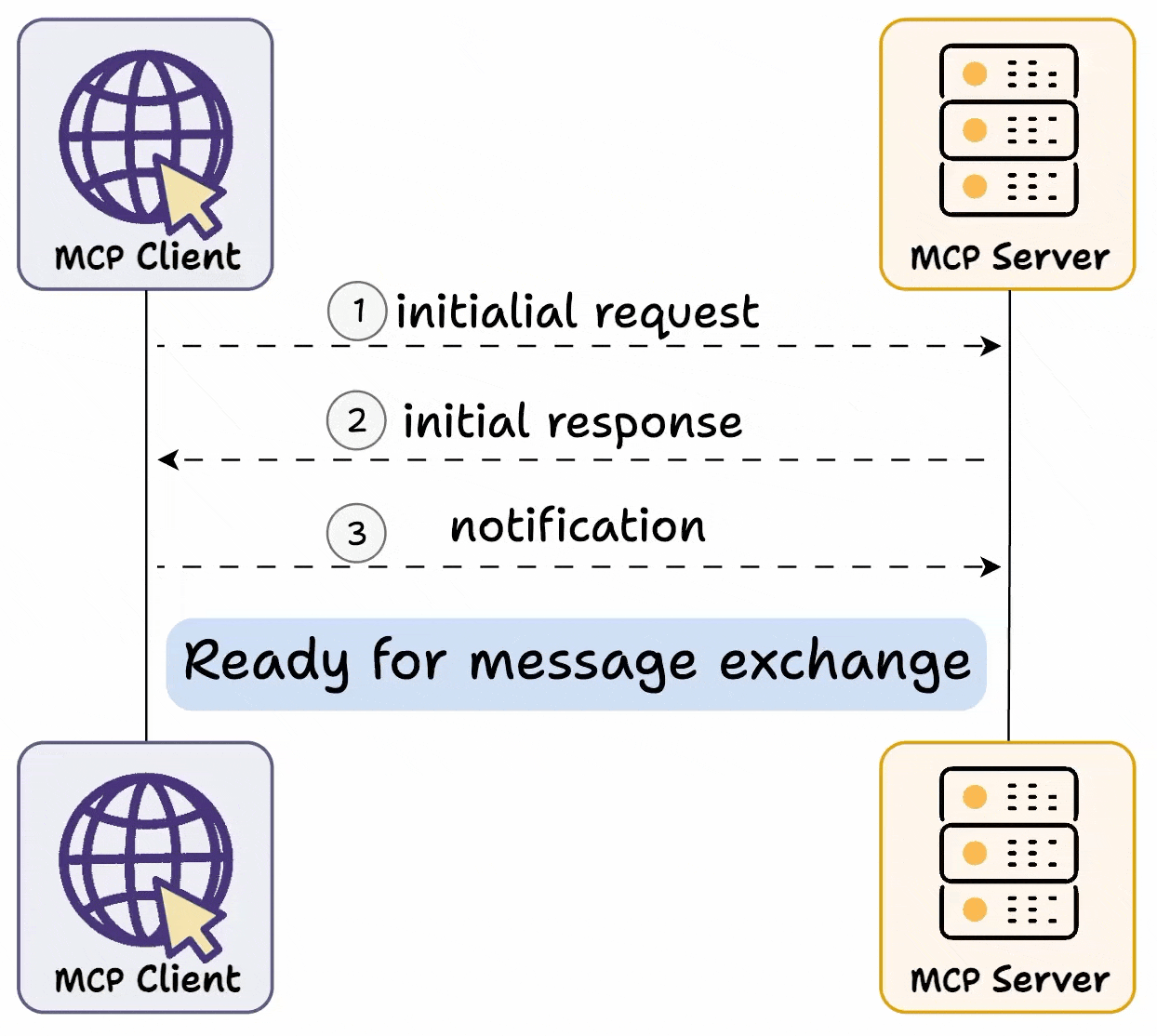
AI models are stupidly isolated from your actual data. Claude can write amazing code but can't read your database. GPT-4 knows everything about APIs but can't call your company's internal services. Every AI integration turns into a custom nightmare of authentication, format conversion, and API wrangling.
Before MCP, connecting AI to external systems meant building one-off integrations for each service. Want Claude to access your PostgreSQL database? Custom integration. Need it to read your Google Drive files? Another custom integration. Want both plus GitHub access? Now you're maintaining three different authentication systems and data formats. The integration complexity problem grows exponentially with each new service.
How This Shit Actually Works
MCP has two parts: the JSON-RPC messaging (which actually works pretty well) and the transport layer (where things get interesting). The JSON-RPC 2.0 foundation is solid - at least the messages work the same everywhere, even when the transport layer decides to have a bad day. Performance-wise, MCP adds about 15-20% latency compared to direct API calls, but that's acceptable for most AI use cases.
The architecture breaks down like this:
- MCP Host: Your AI application (Claude Desktop, Cursor, etc.) that talks to multiple servers
- MCP Client: The connector that handles the messy details of each server connection
- MCP Server: Your custom code that exposes databases, APIs, or files to the AI
STDIO transport for local servers works reliably - I've never had issues with it. HTTP with Server-Sent Events for remote servers can be flaky depending on your network setup, but it's serviceable for most use cases. Production deployments need proper security and monitoring though. The transport comparison guide explains the tradeoffs.
The Three Types of MCP Integrations
Tools let the AI actually do stuff - run database queries, call APIs, modify files. These work great when they work, but debugging tool failures makes you question your career choices. The MCP Inspector tool is essential here - bookmark it now. Alternative debugging tools like MCP Probe and Reloaderoo can also help. Best practices guides provide implementation patterns.
Resources provide data the AI can read - file contents, API responses, database records. Much simpler than tools since they're read-only, but watch out for massive resources that blow up your context window.
Prompts are reusable templates for AI interactions. Honestly, most teams don't use these much yet - tools and resources handle 90% of real use cases.
Companies like Block, Apollo, Zed, and Sourcegraph are using MCP in production, but most are still in pilot mode. The protocol is only 10 months old - expect some growing pains. For production security, you'll need proper authentication frameworks and threat modeling. Enterprise adoption patterns show the current deployment landscape.
